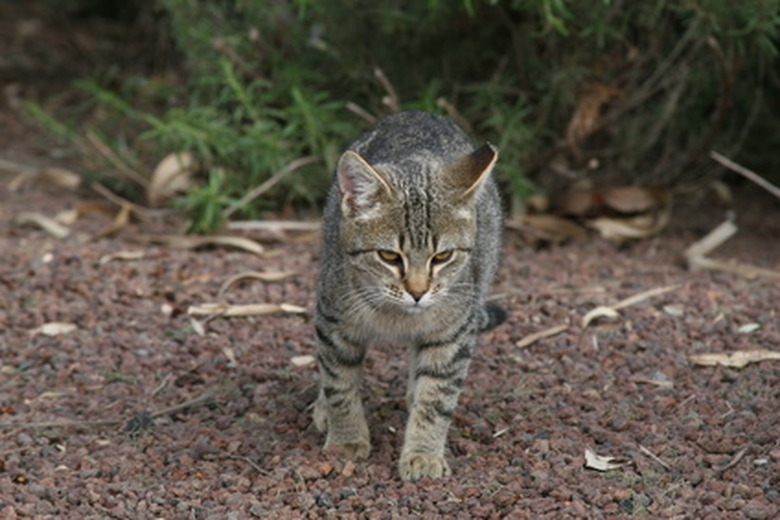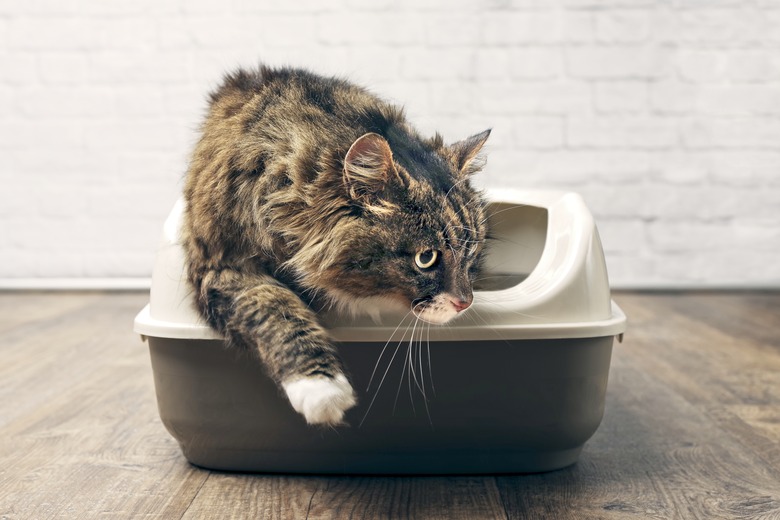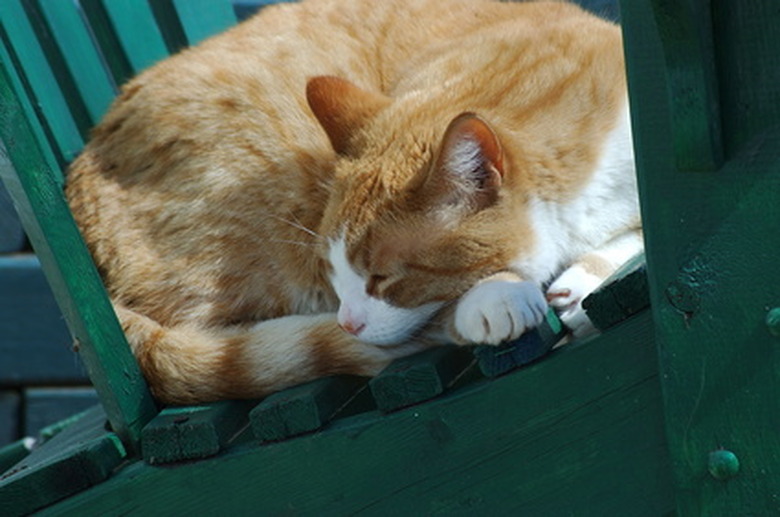Symptoms Of A Cat Near Death
When your cat is very ill, injured, or elderly, there are certain signs you can look for that indicate if she is near death. That's because a cat near death will behave unusually and refuse to eat and will likely be in pain. At the first of any of these signs, it's urgent that you see a veterinarian unless your cat is currently under veterinary care, and you are expecting her to pass away imminently. By the time a cat reaches 15 years of age, she is already considered geriatric and is the equivalent of a human in her late 70s. A cat's lifespan is short, but their impact on our lives is long-lasting.
Cat behavior near death
Cat behavior near death
A cat near death will be increasingly lethargic because he is unable to move or has some form of impaired mobility. This is usually due to an injury, arthritis, or organ failure. Your cat may also have trouble breathing or have very shallow or rapid breaths.
Your cat's appetite may decrease or, more worryingly, your cat will not want to eat. This is very dangerous for cats because if they don't eat for 24 to 48 hours, they can develop conditions like hepatic lipidosis, which affects their liver. If your cat refuses to eat anything, it's time to visit the vet because your cat may need a feeding tube to help him recover if he hasn't been eating for an extended period of time.
You may also notice that your cat either drinks less or drinks more. This could be due to your cat being in renal failure. This condition is common in cats older than 15 years of age.
Cat sleeping in strange places
Cat sleeping in strange places
Cats who don't feel well or who are unfortunately near death may try to go off and hide in spaces where they feel safe and won't be bothered by you or other pets in the household. That's because cats don't like showing weakness.
You may also find that your cat is sleeping or spending time in unusual areas of your home, such as her litter box. A litter box smells like your cat and can make her feel safe, especially if her health is failing. If a cat sleeps in a litter box, death may be near, and a visit to the veterinarian is in order. This could also mean that your cat is too weak to move very far and has collapsed where she is.
Symptoms of illness
Symptoms of illness
The most obvious sign that your cat may be near death is if he is exhibiting signs that he is very ill, including:
- Visible injuries
- Vomiting
- Diarrhea
- Seizures
- Unkempt appearance
- Excessive crying
- Abnormal odor
- Extreme weight loss
- Low body temperature
A cat who is very ill will exhibit these signs if he is possibly near death. Symptoms like seizures and excessive crying require immediate veterinary care. Seizures not only indicate that your cat is very sick but they can permanently damage your cat's health if left untreated. With treatment, such as medication, for the underlying cause of the seizures, your vet can possibly stabilize your cat's health.
Your cat is behaving differently
Your cat is behaving differently
In addition to signs that your cat is ill, symptoms indicating that your cat is near death include severe personality changes. For example, a previously aloof cat may suddenly become very clingy and want to sit with you at all times, or a lap kitty may suddenly start hiding in the closet.
Other changes to look for include your cat becoming unusually aggressive or suddenly becoming confused or disoriented. Your cat may also begin eliminating outside the litter box. These symptoms could indicate that your cat is in pain or experiencing a form of cognitive dysfunction, which is common in senior and geriatric cats who are 10 years old or more.
Note that with treatment, a cat who experiences cognitive dysfunction can live for years with veterinary care and anxiety medication to help her feel better and ease her distress. You'll also need to make adjustments to her environment to improve her access to food, water, her litter box, and resting spots.
References
- Emergency Vets USA: Signs Your Cat is Dying and When to Euthanize
- Senior Cat Wellness: How Do Cats Act When They Are Dying?
- Daily Paws: Signs Your Cat Is Nearing the End of Their Life
- Purina: Why is My Cat Sleeping in the Litter Box? Your Vet May Have the Answer
- Cummings Veterinary Medical Center at Tufts University: Treatment of Hepatic Lipidosis in Cats
- Cornell Feline Health Center: Cognitive Dysfunction


